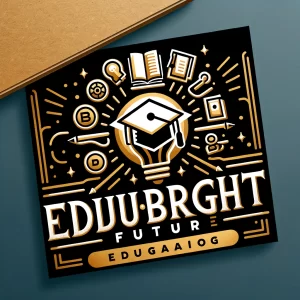Reviving Interest in Ancient Languages
Classical languages like Latin and Ancient Greek hold significant cultural and historical value. Modern pedagogical approaches are key to revitalizing interest in these languages, making them more accessible and engaging to today’s learners.
Innovations in Teaching Classical Languages
Interactive Digital Platforms
One of the most effective ways to engage modern students in classical languages is through the use of interactive digital platforms. Apps and websites that gamify grammar and vocabulary make learning more enjoyable. These platforms often incorporate elements of competition and reward, which can motivate students to progress through levels of difficulty while mastering essential language skills.
Examples of Digital Platforms
- Duolingo: While primarily known for modern languages, platforms like Duolingo have begun incorporating classical languages, using their proven gamified approach to make learning fun and engaging.
- Khan Academy: Offers courses that include interactive exercises and videos to help students grasp complex concepts in classical languages.
Contextual Learning
Incorporating historical and cultural contexts into the curriculum helps students appreciate the relevance of classical languages today. Understanding the literature, art, and philosophy of ancient civilizations through their original languages provides a richer educational experience.
Strategies for Contextual Learning
- Historical Simulations: Role-playing historical events and debates using Latin or Ancient Greek to bring the past to life.
- Cultural Immersion: Studying ancient artifacts, architecture, and customs to create a comprehensive understanding of the era.
Blended Learning Models
Combining traditional classroom methods with online resources and forums enhances flexibility and accessibility. Blended learning allows students to engage with materials at their own pace, facilitating a more personalized learning experience.
Implementing Blended Learning
- Online Forums: Creating spaces where students can discuss and collaborate on translations and interpretations.
- Virtual Classrooms: Using platforms like Zoom or Google Classroom to conduct live sessions, providing direct interaction with instructors.
The Role of Classical Languages in Modern Education
Studying classical languages enriches understanding of history, literature, and modern languages. These languages provide insight into the roots of many contemporary languages and cultures, deepening students’ appreciation of their own linguistic and cultural heritage.
Academic Benefits
- Enhanced Vocabulary: Understanding the etymology of modern English words, many of which are derived from Latin and Greek.
- Improved Grammar: Learning the grammatical structures of classical languages can improve students’ understanding of their native language.
- Critical Thinking: Translating ancient texts requires careful analysis and interpretation, honing critical thinking skills.
Engagement Strategies for Students
Project-Based Learning
Project-based learning allows students to create projects that connect classical languages to modern-day scenarios, such as translating ancient texts into contemporary media.
Examples of Projects
- Modern Adaptations: Students can translate excerpts from classical literature and reimagine them as modern plays, films, or graphic novels.
- Historical Documentaries: Creating video documentaries about ancient civilizations, narrated in the classical languages.
International Collaboration
Linking students with peers worldwide to explore classical texts and compare interpretations fosters a sense of global community and shared heritage.
Collaborative Activities
- Pen Pal Programs: Pairing students with peers in different countries to exchange letters or emails in Latin or Ancient Greek.
- Joint Projects: Collaborating on translations or research projects with students from international schools.
Embracing Cultural Heritage
Classical languages are not just academic subjects; they are gateways to understanding ancient civilizations and their contributions to modern society. By studying these languages, students gain access to a wealth of knowledge and wisdom from the past, fostering a deeper connection to cultural heritage.
Cultural Significance
- Literature and Philosophy: Accessing original texts by authors like Homer, Virgil, and Plato allows students to engage directly with foundational works of Western thought.
- Historical Insight: Learning about the daily lives, political systems, and societal norms of ancient civilizations provides valuable context for understanding the development of modern cultures.
Promoting Appreciation
- Exhibitions and Workshops: Hosting events that showcase the relevance of classical languages and cultures in today’s world.
- Public Lectures: Inviting scholars to speak about the impact of ancient civilizations on contemporary society.
Conclusion
Reviving interest in classical languages through modern pedagogical approaches not only makes learning these languages more accessible and engaging but also enriches students’ understanding of history, literature, and modern languages. By integrating interactive digital platforms, contextual learning, and blended learning models, educators can foster a deeper appreciation for classical languages and their cultural significance. Embracing these strategies and recognizing the broader educational and cultural benefits ensures that classical languages remain a vital part of modern education, preparing students to become informed and thoughtful global citizens.
